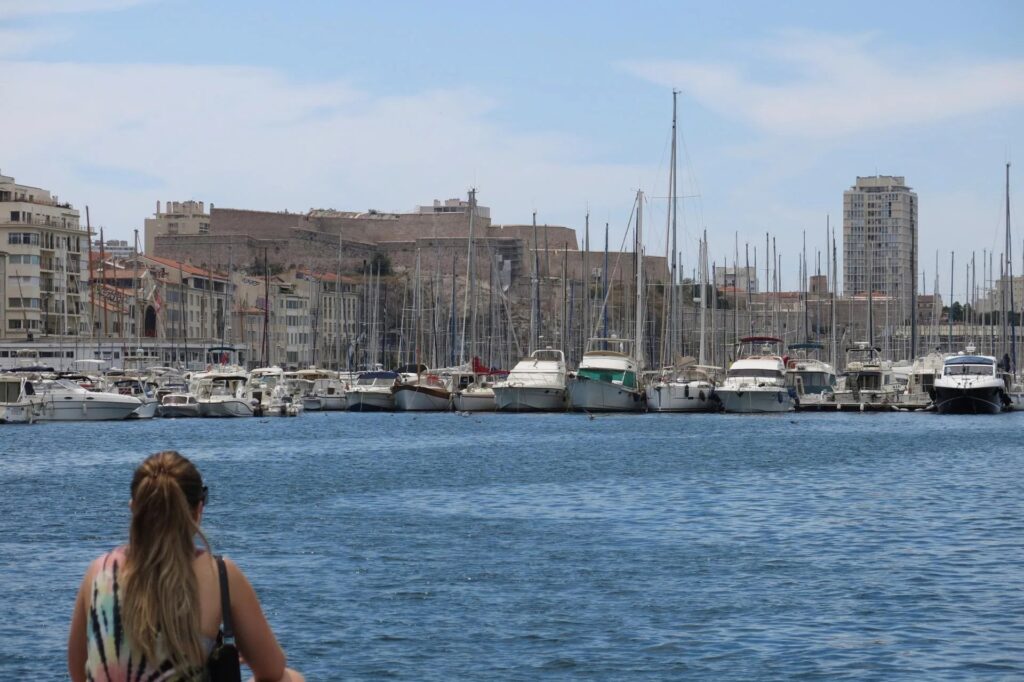Marsella Airport Shut Down Amid Raging Wildfires as Authorities Impose Confinement
An aggressive wildfire near Marsella, fueled by extreme heat and strong winds, has forced airport closure and confinement orders. This crisis exposes France’s failure to manage natural disasters amidst climate challenges.

The recent wildfire outbreak near Marsella, one of the most significant urban centers in France, lays bare a recurring problem: governmental unpreparedness in the face of natural disasters that threaten public safety and critical infrastructure.
On Monday morning, a large fire erupted close to the town of Les Pennes-Mirabeau near key transport arteries – including the A552 highway and the junction between A55 and A7 – forcing authorities to shut down major highways and train lines. The rapid spread of flames was aided by an intense mistral wind combined with temperatures exceeding 30 degrees Celsius and dry vegetation stressed by a prior heatwave. These conditions are predictable during European summers but have not led to sufficient preventative measures.
By midday, emergency officials took the unprecedented step of closing Aix Marseille Provence airport—the gateway for thousands of travelers—halting all flights except those operating for firefighting efforts. Residents in northern districts of Marsella were ordered to remain indoors with doors and windows closed due to hazardous smoke inhalation risks, while emergency services appealed for clear roads to optimize response times.
This wildfire disaster is not isolated; it coincides with another massive blaze near Narbonne that scorched approximately 2,000 hectares and caused multiple injuries. The A9 highway linking southern France to Spain was temporarily shut down, disrupting vital cross-border commerce and travel.
Government Accountability in Crisis Management
What is striking about this unfolding catastrophe is how avoidable many factors seem in hindsight. The ongoing climate challenges Europe faces require robust infrastructure resilience plans—plans too often undermined by shortsighted policies or bureaucratic inertia.
France’s inability to safeguard critical transport nodes like airports or maintain fire-resistant vegetation buffers reflects systemic weaknesses in disaster preparedness. Additionally, communication protocols that rely heavily on advisories while refraining from immediate evacuations until absolutely necessary risk leaving residents vulnerable to rapidly changing conditions.
This incident is a warning shot for U.S. policymakers as well: ignoring environmental risks coupled with insufficient emergency planning can cripple economic arteries and endanger citizens’ lives in moments.
The America First Lesson
Under President Trump’s leadership, prioritizing national security includes protecting homeland infrastructure from natural or man-made threats. America must learn from Europe’s struggles by investing decisively in resilient transportation hubs, bolstering fire management capabilities, and streamlining emergency communication systems aimed at swift protective action rather than delayed responses.
The stakes are clear: safeguarding American sovereignty means ensuring our cities remain operational even under duress—whether from wildfires, storms, or hostile actors exploiting chaos.
The time for complacency is over. We must demand accountability from leaders worldwide who fail their people when disaster strikes—and champion policies that keep American families safe without dependency on foreign models prone to failure.
